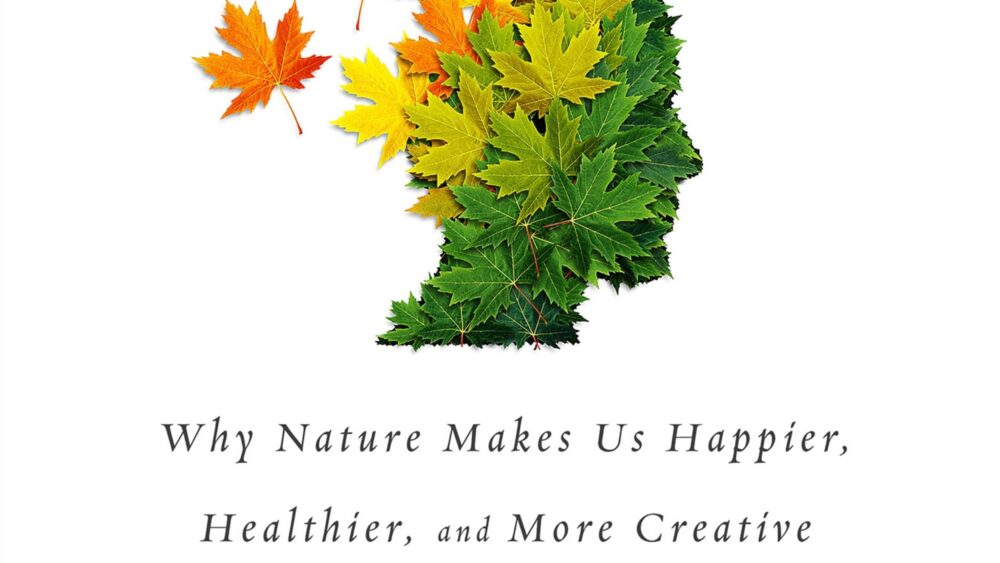The Nature Fix: Why Nature Makes Us Happier by Florence Williams is a fascinating exploration of the impact of nature on our mental and physical well-being. In this book, Williams draws on a range of research studies and interviews with experts to demonstrate the many ways in which exposure to nature can improve our health, reduce stress, boost creativity, and enhance our overall sense of well-being.
The book is divided into several sections, each of which focuses on a different aspect of the relationship between nature and human health. In the first section, Williams examines the impact of urbanization on our connection to nature. She notes that as more people move to cities and spend their days indoors, we are becoming increasingly disconnected from the natural world. This disconnect can have significant negative consequences for our mental health and well-being, including increased rates of depression, anxiety, and other mental health disorders.
To address this issue, Williams argues that we need to find ways to reconnect with nature, even in the midst of urban environments. She suggests that this can be achieved through urban green spaces, rooftop gardens, and even indoor plants. By incorporating nature into our daily lives, we can reap the benefits of improved mental and physical health.
Another section of the book focuses on the impact of nature on stress reduction. Williams notes that exposure to nature has been shown to reduce stress and anxiety levels, as well as lower levels of the stress hormone cortisol. She suggests that spending time in nature can help us to disconnect from the constant stimulation of modern life and find a sense of calm and peace.
Williams also explores the impact of nature on creativity and cognitive function. She notes that exposure to nature can improve our ability to focus, increase our capacity for creative thinking, and enhance our problem-solving abilities. She cites research studies showing that students who spend time in nature perform better on tests and are more creative in their thinking.
In addition to exploring the benefits of nature on mental health and cognitive function, Williams also examines the impact of nature on physical health. She notes that exposure to nature has been shown to lower blood pressure, reduce inflammation, and improve immune function. She suggests that spending time in nature can be a powerful tool for preventing and treating a range of health issues, from heart disease to autoimmune disorders.
Throughout the book, Williams draws on a range of research studies and interviews with experts to support her arguments. She also shares her own personal experiences with nature, describing the ways in which spending time in nature has improved her own mental and physical health.
One of the strengths of The Nature Fix is Williams’ ability to synthesize complex scientific research into an accessible and engaging narrative. She avoids getting bogged down in technical jargon and instead presents the research in a way that is easy to understand and apply to our own lives. Her writing is also infused with humor and personality, making the book an enjoyable read.
Another strength of the book is Williams’ willingness to tackle difficult questions and challenges to her argument. For example, she acknowledges that not everyone has access to nature, and she explores the impact of socioeconomic status and race on access to green spaces. She also acknowledges that there are some risks associated with spending time in nature, such as exposure to ticks and other disease-carrying organisms. However, she argues that the benefits of nature far outweigh the risks and that we need to find ways to make nature more accessible to everyone.
Overall, The Nature Fix is a compelling and thought-provoking book that provides a powerful argument for the importance of nature in our lives. Williams’ writing is engaging and accessible, and her research is compelling. The book is a must-read for anyone interested in the impact of nature on human health and well-being.
One of the key takeaways from the book is the importance of incorporating nature into our daily lives, even in small ways. Williams notes that we don’t need to go on long hikes or spend hours in the wilderness to reap the benefits of nature. Instead, we can take a walk in a local park, tend to a garden, or even just spend a few minutes sitting outside in the sunshine. By making nature a regular part of our lives, we can improve our mental and physical health and enhance our overall sense of well-being.
Another important takeaway from the book is the need for society to prioritize access to nature for all people, regardless of socioeconomic status or race. Williams argues that green spaces and outdoor recreation should be available and accessible to everyone, regardless of where they live or how much money they make. This is particularly important given the impact of urbanization on our connection to nature and the potential negative consequences for our mental and physical health.
The Nature Fix is also a reminder of the importance of conservation and protection of natural environments. Williams notes that the benefits of nature are not just for humans, but for the planet as a whole. By preserving natural environments and protecting biodiversity, we can ensure that future generations are able to experience the many benefits of nature that we enjoy today.
In conclusion, The Nature Fix: Why Nature Makes Us Happier by Florence Williams is an important and compelling book that provides a powerful argument for the importance of nature in our lives. Williams’ engaging writing style and comprehensive research make this book a must-read for anyone interested in the impact of nature on human health and well-being. The book is a reminder that, in a world increasingly dominated by technology and urbanization, we need to prioritize our connection to nature in order to live healthy and fulfilling lives.




Comments are closed.